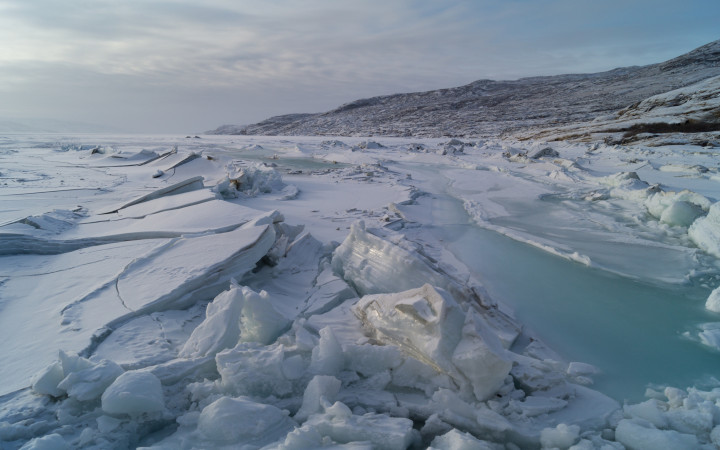Today’s Wonder of the Day was inspired by Wonderer. Wonderer Wonders, “What is an icequake?” Thanks for WONDERing with us, Wonderer!
Would you like to live in Antarctica? The average temperature of -30°F (34.4°C) might stop many from moving there. But it’s not all bad! You could live next to a penguin. You’d have six straight months of sunlight. And, of course, you’d get to experience one of Earth’s rarest geological events nearly every day. What are we talking about? Icequakes, of course!
What is an icequake? The name might make you think of earthquakes. In some ways, the two are alike. Both icequakes and earthquakes cause the ground to shake. They can both be measured by seismographs. The biggest difference between the two is how they’re caused.
Many Wonder Friends already know what causes earthquakes. Icequakes, on the other hand, happen when water in the ground freezes very quickly. When water freezes, it . As groundwater becomes ice, it breaks up the soil and rocks around it. In some cases, it can even cause cracks in the ground above.
Icequakes are also called frost quakes or cryoseisms. They’re common across Antarctica. Experts there say Earth’s coldest continent has had hundreds of thousands of them in recent years. They’ve also shared that most icequakes happen at night when temperatures drop.
Why is Antarctica experiencing so many icequakes? You might imagine the very low temperatures are to blame. But they are actually on the rise due to warmer weather. Rising temperatures cause Antarctic ice to melt. This makes water that can freeze again to cause an icequake.
When ice in Antarctica melts, it often makes an icy slush. At night, as temperatures drop, the top layer of this slush freezes quickly. As the liquid below the surface starts to freeze, it . This causes the top layer to warp and crack. This triggers an icequake.
What does an icequake feel like? Most of them are much weaker than earthquakes. Often, people don’t feel them at all. But they can usually hear an icequake. It makes a loud pop or boom.
Do icequakes only happen in Antarctica? No! They also occur in Greenland, most often near glaciers. You might also hear an icequake in Canada, as well as in the midwestern and northeastern United States.
Has an icequake ever happened near you? Did you hear it? They make a loud noise that’s hard to miss. Maybe you’ll get to study icequakes in Antarctica one day. Until then, listen for them on very cold nights. You never know when rapidly dropping temperatures could cause the ground to shake!
Standards: CCRA.R.4, CCRA.L.3, CCRA.L.6, CCRA.R.1, CCRA.R.2, CCRA.R.10, CCRA.W.2, CCRA.W.3, CCRA.W.9, CCRA.SL.1, CCRA.SL.2, CCRA.L.1, CCRA.L.2,




